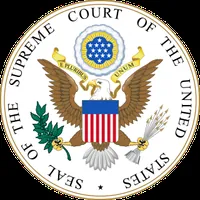GOP Bill Seeks Transparency in Civil Lawsuit Funding
Republican lawmakers introduce legislation requiring disclosure of third-party funding in civil lawsuits, aiming to increase transparency and address concerns about unnecessary litigation in the $15.2 billion industry.

Darrell Issa, a Republican Representative from California, has introduced a bill that would mandate the disclosure of third-party funding in civil lawsuits. This legislation, co-sponsored by Scott Fitzgerald of Wisconsin, aims to enhance transparency in the legal system by requiring parties in civil litigation to reveal the identity of any third-party entities with a contingent right to receive payment based on case outcomes.
The proposed bill comes amid growing scrutiny of the litigation funding industry, which has expanded significantly over the past decade. This sector, which emerged in the 1990s and originated in Australia before spreading to the UK and US, has grown into a $15.2 billion industry in the United States alone. The global market was valued at approximately $11.4 billion in 2019, highlighting its rapid growth and increasing importance in the legal landscape.
Proponents of litigation funding argue that it improves access to justice for those who cannot afford legal fees, potentially leveling the playing field in complex cases. However, critics, including the U.S. Chamber of Commerce, contend that the practice may promote unnecessary litigation and undermine transparency in the legal system. They argue that disclosures can help identify potential conflicts of interest and determine if financial backers are influencing case decisions.
The bill would require parties to provide the court and other named parties with a copy of any agreement creating a contingent right to payment. This move aligns with efforts in some U.S. states, such as Louisiana, Indiana, and West Virginia, which have recently enacted laws governing the litigation finance industry. However, similar measures in states like Florida and Kansas stalled in their legislatures this year.

It's worth noting that litigation funding is not regulated at the federal level in the United States, although the American Bar Association (ABA) has issued ethics opinions on the practice. In 2018, the U.S. District Court for the Northern District of California became the first federal court to require disclosure of third-party litigation funding in class actions, setting a precedent for increased transparency.
The introduction of this bill follows a recent push by over 100 major companies, including Amazon.com, Google, Cisco, Meta, Comcast, Exxon, Zurich, Eli Lilly, Bayer, Ford, Pfizer, and Novartis, urging the U.S. judiciary to adopt a nationwide rule requiring litigation funding disclosure. This collective action by corporate giants underscores the growing concern about the impact of third-party funding on the legal system.
In response to these developments, the International Legal Finance Association, a Washington, D.C.-based group founded in 2020 to advocate for the commercial funding industry, stated:
"Courts already have the authority to order the disclosure of financing agreements and are in the best position to determine the relevancy of any financing agreement to the merits of the litigation."
This statement highlights the ongoing debate between those seeking increased regulation and industry representatives who argue that existing mechanisms are sufficient.
As the bill moves to the U.S. House of Representatives Judiciary Committee, it faces an uncertain future. Previous federal legislation attempts to require litigation finance disclosure in certain cases have not progressed, indicating potential challenges ahead for this new proposal.
The litigation funding industry continues to evolve, with the use of artificial intelligence and data analytics becoming more common in assessing case potential. Additionally, the COVID-19 pandemic has led to an increase in demand for litigation funding, particularly in areas such as insurance disputes and bankruptcy litigation, further complicating the regulatory landscape.
As this bill progresses through the legislative process, it will likely spark continued debate about the role of third-party funding in the legal system and the balance between transparency and access to justice.


































